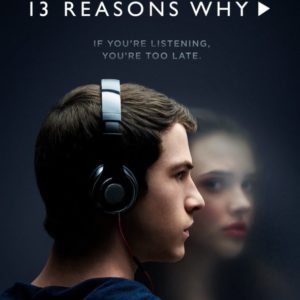Let’s Talk Parenting…Again…

butterfly on leaf
I was invited to speak this week about parenting at NetReach’s weekly meeting in the Hi-Crest neighborhood. Taco Tuesday is what it is lovingly referred as.
For those that don’t know, over 60 years ago Hi-Crest was a thriving neighborhood of military families that served at Forbes Field. Today? It’s drastically different. Most Hi-Crest families find themselves in a cycle of poverty, living in a neighborhood of declining property values and high crime rates. Topeka Rescue Mission began focusing on this neighborhood in 2013 with the NETReach Initiative.
Of the many opportunities and programs that NETReach offers, Taco Tuesdays are kinda special. They have a community meal, a large group speaker who introduces a topic for the evening, then they break up into small groups to flesh out that topic in their life. My task was simply to put everything I know about parenting into a 30 minute window.
Easy Peazy, right?
I was nervous. By all standards imaginable I have it easy compared to every single person in that room. Gun shots don’t awaken me at night. I don’t have a drug dealer living next door. I don’t fear for my kids life when they play outside. I’m not worrying about where the next meal is coming from. We live less than 15 miles apart. It might as well be another universe.
Was it arrogance on my part to even agree to speak here? After 26 years of marriage and 3 kids of my own – I’ve learned my fair share about parenting but how much of it is really applicable in this setting? And would they even want to listen to me?
So I gave my talk and nobody left or got angry or got up in the middle of it. In fact, some common themes became self-evident.
We love our kids. We want the best for them. Parenting is both the most rewarding and most frustrating undertaking in our lives. We know all too well our imperfections and faults as parents. We want to grow and improve as parents.
Regardless of the environment you grow up in, it’s part of a parent’s instinct to rescue our kids when we see them struggle. Whether that be when they are learning to tie their shoes, their chemistry homework, or relationship issues among their friends and/or significant others. Every parent has felt the tug to rush in and fix it. To stop it. To make it better. To make it right.
It appears to be a noble effort. In fact, there would be many that would say that is the essence of parenting – helping the child. That instinct to rush in and relieve the pain, remove the frustration of the struggle. We have this incredible capacity to avoid pain and struggle at all cost – for ourselves and for our children.
But we also want strong kids who grow into strong adults. Adults who can navigate the choppy waters of life, who don’t shirk from a challenge.
There’s a tale of a science teacher who brought a cocoon into his class. As the kids watched the cocoon start to move, they realized there was a caterpillar-now-butterfly fighting to get out. Overcome with compassion, one kid rushed to open the cocoon to help the butterfly get free but the teacher immediately stopped her.
“If the butterfly doesn’t struggle to get out, it will not develop the strength to fly.”
One of our family’s favorite sayings is “Hard isn’t bad, it’s just hard. And we can do hard things.”
So perhaps the role of a parent is to walk WITH our kids through their struggles. Giving them tools THEY need and can use, coaching them how to keep their head about them.
I think this is exactly how our Heavenly Father parents us. How many times have I argued with God for comfort, for ease. For the nice, comfortable way out of a situation or conversation…
I’m learning that it’s still okay to pray that way – “Father, remove this cup from me…” as long as I allow him to make that final call…”but not my will, yours.”
He’s earned that trust from me – even if at times I can’t admit it or see it. He’s proven over and over again that He is with me in my struggle. And that’s enough for me…for now.






 Have you heard that we started the new series “Blotch” this past Sunday? (Don’t you wish there was a sarcasm font?)
Have you heard that we started the new series “Blotch” this past Sunday? (Don’t you wish there was a sarcasm font?)










